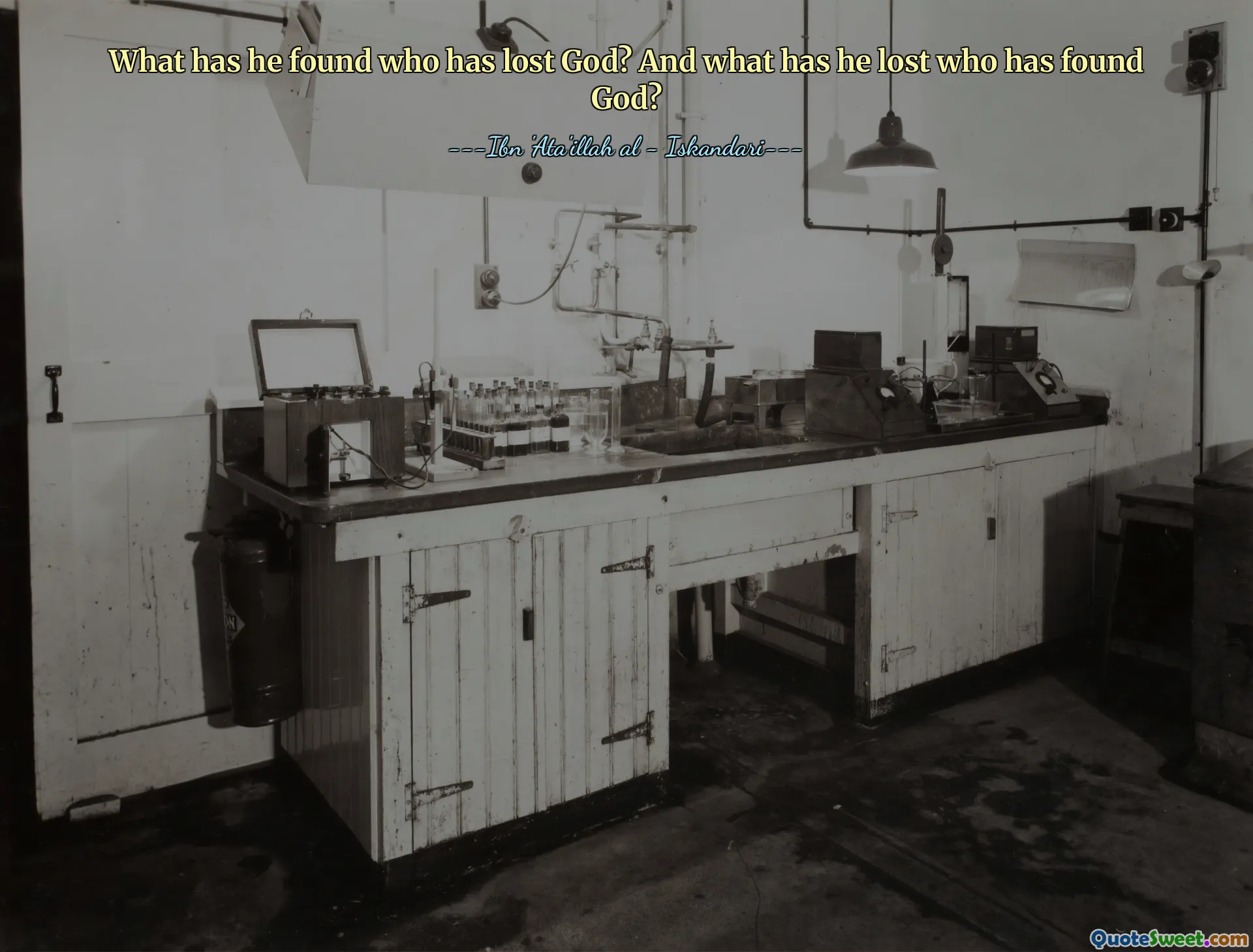
What has he found who has lost God? And what has he lost who has found God?
This profound question invites deep reflection on the nature of spiritual connection and the essence of divine relationship. When someone perceives that they have 'lost' God, it often indicates a state of spiritual distance, doubt, or neglect, suggesting that in the absence of awareness or consciousness of the divine presence, one might feel empty or disconnected. Conversely, 'finding' God symbolizes the awakening of the soul, a rekindling of faith, and an intimate understanding of divine realities. It raises an essential paradox: if we believe we have lost God, what is it that we truly possess or lack? Conversely, if we have truly found God, what else could be lost? The implication is that spiritual fulfillment and divine communion are not merely external accomplishments but internal states of being. Achieving a deep connection with the divine often entails shedding illusions, ego, and superficial pursuits—conceptually, losing worldly attachments to gain spiritual insight. The process is transformative; losing oneself in the pursuit of realigning with the divine, or finding the divine within, leads to a sense of completeness that transcends material understanding. It also emphasizes that divine presence is not something that can be truly lost but may only be obscured by the distractions of the ego, worldly attachments, or ignorance. Ultimately, this quote encourages a perspective shift—viewing the spiritual journey as a process of continual discovery, where losing the delusions of separation, reveals the unity with the divine that has always been present. The pursuit is less about acquisition or loss and more about uncovering the eternal reality within oneself, which unveils the profound truth that seeking the divine in essence is a process of self-discovery and divine recognition.







